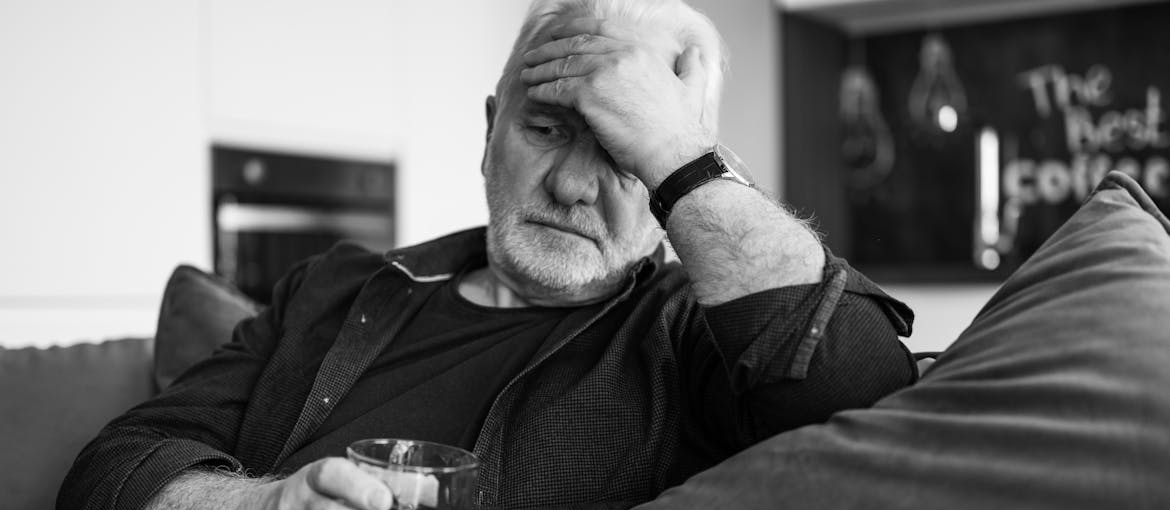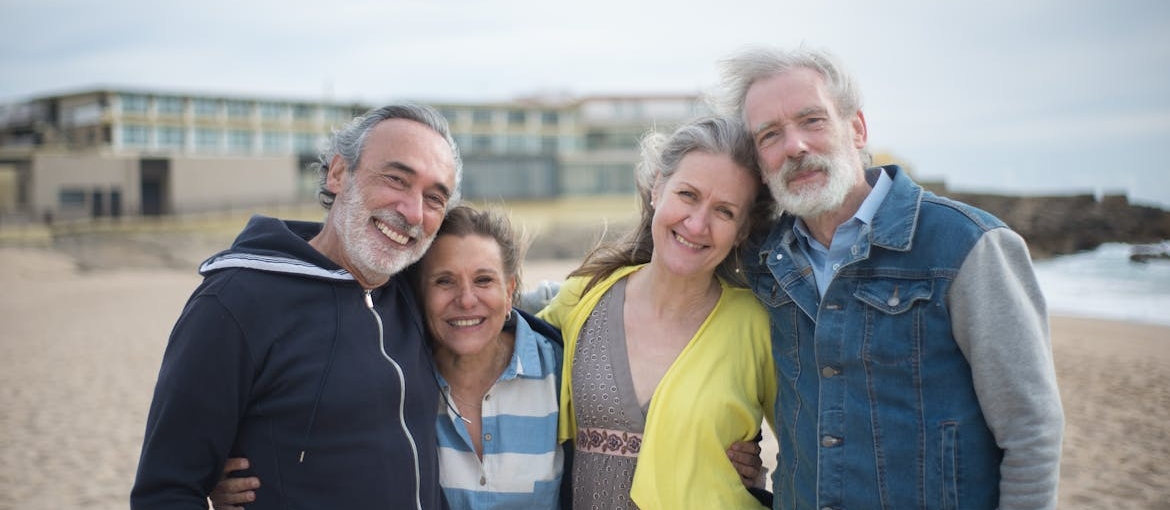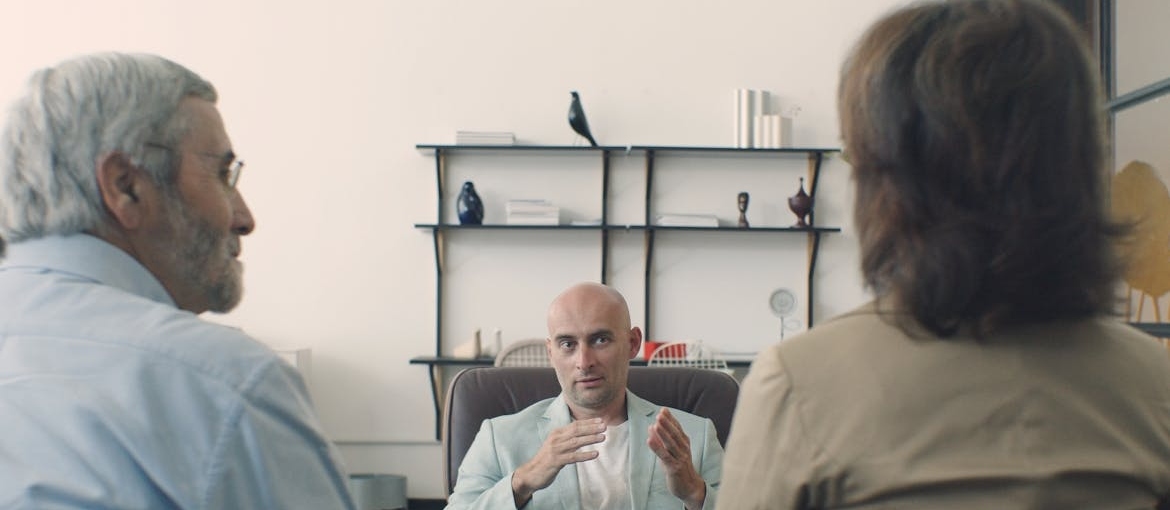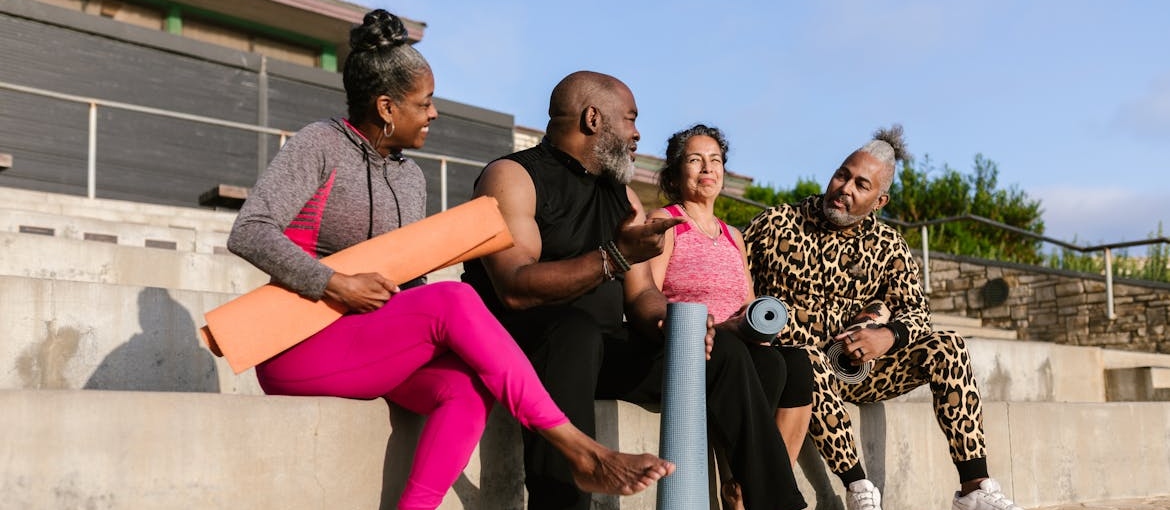Addiction can affect people at any age, including later in life. If you’re searching for help for yourself or someone older, you’re not alone. Many older adults face substance use and need care that fits their stage of life. That’s where senior addiction treatment comes in. It focuses on health, comfort, and long-term recovery. You might have questions about where to start or what options are safe. Some rehab centers in West Virginia offer programs built for older adults. These programs focus on both physical and mental health. This article breaks down treatment options that actually work. It’s written to help you take the next step without feeling overwhelmed. Getting help is possible—and it starts with the right kind of support.
Why Senior Addiction Treatment Requires a Unique Approach
Addiction in older adults often looks different than in younger people. Many times, the cause is tied to pain, loss, or isolation. Some seniors begin using substances after a surgery, divorce, or death of a partner. Others never stopped drinking or using medications and now face bigger risks. The link between chronic pain and addiction in older adults is another major factor. Many seniors take opioids or sedatives for years.

Over time, tolerance builds, and misuse begins without them even realizing it. Seniors also process drugs differently as their bodies age. That means even small doses can lead to big problems. Treatment has to match these challenges. Programs need to be slow-paced, respectful, and focused on physical and mental health. Seniors and addiction is a growing issue—but the right care can help.
Signs of Addiction in Older Adults to Watch For
Addiction in seniors doesn’t always stand out. It’s easy to mistake symptoms for normal aging. But certain changes signal a bigger issue. Spotting the signs early makes a big difference when it comes to overcoming addiction later in life. Here are some signs that may point to substance use problems in older adults:
- Change in sleep: More naps or trouble falling asleep regularly.
- Personality shift: Sudden mood swings or withdrawal from others.
- Memory issues: Forgetting things more often than usual.
- Missed pills or overuse: Running out of medications too early.
- Falls or injuries: Getting hurt without a clear reason.
- Poor hygiene: Ignoring grooming or changing clothes less often.
- Hiding behavior: Avoiding questions or lying about substance use.
Top Senior Addiction Treatment Options That Work
Seniors need treatment options that match their age, health, and personal experiences. Many people don’t realize how common addiction in seniors really is. You may wonder, how many senior citizens are addicted to drugs or what is the most effective treatment for substance abuse among older adults? The truth is, there’s no one-size solution. But there are several care options that can help older adults recover safely, comfortably, and for the long term.
Inpatient and Outpatient Rehab Programs
Some seniors benefit from daily support in structured rehab settings. Others may do better staying home and attending scheduled treatment. Both options offer real results, but the right choice depends on health, mobility, and mental clarity. If addiction has lasted many years or involves multiple relapses, a long term drug rehab WV facility may be the best fit. These programs offer medical care, therapy, and daily structure.

For some seniors, inpatient care can feel like too much too fast. Outpatient programs give more freedom but still require regular attendance. Both include counseling, medication if needed, and relapse prevention planning. They’re designed to reduce isolation and help older adults build routines again. Many senior addiction treatment programs now adjust schedules to suit sleep needs and health issues. That kind of flexibility matters during recovery.
Medication-Assisted Treatment (MAT) for Seniors
Medication-Assisted Treatment combines therapy with safe medications that reduce cravings or block the effects of alcohol and drugs. It can work well for seniors who have long-term dependence or struggle with withdrawal symptoms. The most common addiction in elderly people is alcohol use, and MAT often includes approved medications to manage that. These medications help stabilize the body, making it easier to focus on therapy.
For opioid addiction, options like buprenorphine or naltrexone may be used. It’s important to monitor for side effects since older adults often take other prescriptions. When used correctly, MAT can improve quality of life and lower the chance of relapse. It’s part of many senior addiction treatment programs because it works, especially when paired with counseling. This approach is safe, backed by research, and gives many seniors a real path forward.
Holistic Options Tailored to Older Adults
Holistic therapy for addiction addresses physical, mental, and emotional health together. For seniors, this might include movement classes, guided meditation, or art therapy. These practices can reduce stress, manage pain, and improve sleep. Some programs also offer nutrition planning or massage therapy, helping older adults feel more in control of their bodies again.
Social connection is another benefit. Group classes help seniors stay active and engaged while building peer support. Not every treatment center offers these services, but more are adding them as part of senior addiction treatment. Holistic care doesn’t replace traditional treatment—it supports it. When older adults feel supported in more ways, they’re more likely to stay committed.

The Role of Mental Health in Senior Addiction Recovery
Many older adults struggle with depression, anxiety, or trauma. These mental health challenges can fuel substance use or keep people from asking for help. That’s why mental health support is a key part of senior addiction recovery. Some may benefit from group sessions, but others prefer individual therapy for addiction. Talking one-on-one gives space to share without pressure. For seniors with memory loss or confusion, therapy may need to be adjusted. Simple, calm language and shorter sessions work best. These are common mental health areas that need support during recovery:
- Depression treatment: Seniors often hide emotional pain behind physical complaints.
- Grief support: Loss is a common trigger for substance use in older adults.
- Anxiety care: Worries about health or independence can increase addiction risk.
- Trauma work: Some carry unresolved trauma from decades ago.
- Supportive environment: Encouragement matters as much as the therapy itself.
How to Choose the Right Senior Addiction Treatment Center
Finding the right treatment center is hard—especially when trying to help a parent, partner, or friend. You may not know what questions to ask or what kind of care fits best. Start by focusing on the needs of older adults. Some centers offer options made for younger people, which might not work for someone with health concerns or memory issues. Seniors need calm spaces, trusted providers, and age-aware support.

What to Look for in a Treatment Facility
Not every rehab is the same. Some don’t offer programs for older adults at all. Look for staff trained in senior addiction treatment, experience with chronic illness, and access to therapists who understand aging. Medical care should be available on-site. If your loved one has memory loss, ask about cognitive support. The drug and alcohol rehab center Fairmont WV facilities residents trust often include specific tracks for seniors, making them a smart place to start. A good center will also offer family support and long-term planning.
Does the program include aftercare? Are there therapy options beyond group settings? The more questions you ask, the better you’ll understand the care provided. Comfort, safety, and respect are non-negotiable. Seniors deserve a place where they feel seen and heard. It’s not just about stopping use—it’s about rebuilding life in a way that works for them.
Questions to Ask Before Admitting a Loved One
Ask the right questions before you decide:
- Does your program specialize in senior addiction treatment?
- How do you support patients with other health conditions?
- What mental health care do you provide?
- Is medication management part of the program?
- Are visiting hours flexible for family?
- What kind of aftercare is available?
- Can meals and physical activities be adapted to the person’s needs?
- How do you handle relapse prevention for older adults?

Why Specialized Senior Programs Matter
You may wonder how to help a senior alcoholic or how many seniors are addicts. Addiction in older adults often goes untreated because symptoms get missed or blamed on age. That’s why rehab for seniors is so important. These programs aren’t just smaller versions of regular treatment—they’re made for aging bodies and minds. Seniors face different triggers than younger people. Loneliness, loss, and chronic pain are common.
Specialized programs adjust therapy methods, pace, and goals. The staff often includes geriatric care experts who know how to spot issues early. These programs also work to build confidence and community, which helps seniors stay sober. Effective senior addiction treatment includes more than detox. It means creating a full plan for recovery, mental wellness, and daily life. And it’s one of the best things you can do to help someone you love heal.
Supportive Therapies That Boost Recovery in Seniors
Therapy helps, but healing takes more than talk. Supportive services can improve mood, reduce pain, and build habits that last. For example, motivational interviewing for substance abuse uses open-ended questions to help seniors set personal goals. It doesn’t push—it encourages. Seniors often respond well to this method. Other therapies support body and mind together. These work especially well when paired with regular counseling and family involvement. Below are some supportive therapies that help older adults stay on track:
- Art or music therapy: Creative tools help express emotions and reduce stress.
- Movement classes: Gentle activity builds strength, confidence, and connection.
- Peer support groups: Seniors benefit from talking to people their age.
- Nutrition help: Balanced meals support healing and medication use.
- Meditation or breathing: Helps with sleep, focus, and anxiety.

Creating a Long-Term Healing Plan That Works
Treatment is just the beginning. Long-term recovery takes addiction relapse prevention. Many seniors feel lost after leaving rehab. They may return to old routines or feel isolated again. A good long-term plan includes medical follow-up, social support, and clear goals. Aging brings change, so plans should stay flexible. Relapse can happen, especially during stressful events like moving or losing a friend.
Aftercare should be part of any solid senior addiction treatment program. That includes counseling, check-ins, and help with daily habits. Family support is also important—when loved ones stay involved, seniors are more likely to stay on track. Recovery doesn’t stop when rehab ends. It continues through each small, daily step. Helping seniors stay active and connected makes a real difference. Long-term healing isn’t quick—but it’s possible with the right support.
Conclusion: A Better Future Is Possible at Any Age
Finding the right help matters, especially when it comes to senior addiction treatment. Recovery doesn’t have to feel out of reach, even later in life. The right program can support both your body and your mind. You don’t have to go through this alone. If you or someone you care about is struggling, now is the time to look into real options. Support is available, and it’s built for your needs. Start with a program that understands older adults and takes their health seriously. Healing takes effort, but it’s possible with the right help. Take that first step today. You’re not too old to get better. And it’s never too late to feel more like yourself again.



